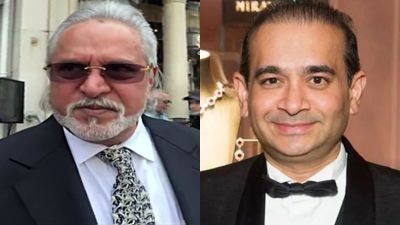Eminent Urdu scholar CM Naim dies at 89
Naim leaves behind an unparalleled legacy as an author, custodian and a lover of the Urdu language
 When Naim sahib began teaching Urdu language and literature, there weren’t many resources for teaching Urdu at universities. (Photo: https://southernasia.uchicago.edu)
When Naim sahib began teaching Urdu language and literature, there weren’t many resources for teaching Urdu at universities. (Photo: https://southernasia.uchicago.edu)Eminent Urdu scholar, author, and translator CM Naim passed away at 89 on Wednesday in Chicago.
Naim’s nearly six-decade-long career was dedicated to restoring Urdu, a language he rued was losing its sheen in the sub-continent, to its original glory.
Born in UP’s Barabanki, he studied Urdu at Lucknow University, followed by another Master’s in Linguistics at the University of California, Berkeley. For the next several years, he moved across universities in the US, before embarking on his long association with the University of Chicago where he taught from 1961 to 2001. There he chaired the South Asian Languages and Civilisations department there from 1985 to 1991.
As unparallelled as his academic contribution to the proliferation of Urdu literature was, it was his unique approach towards making the language accessible that left a mark on the global literary scene.
For Hindustani classical singer Vidya Rao, who was also the commissioning editor for ‘Urdu Crime Fiction, 1890-1950: An Informal History’ (2023) at Orient Black Swan, Naim’s death is a personal loss. “Today is Guru Purnima, and I feel like I have lost my guru,” she said.
“I had read him even before I had the privilege of publishing his work. There was so much knowledge, understanding and research, but also it was so accessible. He was not writing for just a small group of people… He was reaching out to people who may not be scholars,” said Rao. Orient Black Swan worked with Naim on two other books — distributing ‘Urdu Texts and Contexts: The Selected Essays of CM Naim’ (2004, published by Permanent Black) and ‘A Most Noble Life: The Biography of Ashrafunnisa Begum (1840–1903) by Muhammadi Begum (1877–1908)’ (2022), which he translated and wrote the introduction for.
Naim’s unique quality as a writer was his eye for the innocuous. Close friend and former professor at Zakir Husain Delhi College Khalid Alvi said, “He was someone who would write about people and things that one would otherwise overlook. He was the person who brought people like Munshi Tirath Ram Ferozpuri and Mirza Fida Ali Khanjar lakhnawi — who had written early detective fiction in Urdu — to the forefront. He also wrote about Zafar Umar, an IPS officer who took to writing after tragically losing a limb. Naim saab wrote about how one of Umar’s stories, ‘Neeli Chhatri’, was named after his home in Aligarh.”
Renowned Urdu scholar, Professor C.M. Naim, has passed away. May he rest in peace. Was honoured to call him a friend.
Choudhri Mohammed Naim (3 June 1936 – 9 July 2025)https://t.co/TxTguI73Hd pic.twitter.com/V1kCYtC7ka
— Musharraf Ali Farooqi (@microMAF) July 10, 2025
Among his most memorable pieces, both Rao and Alvi agreed, is his article on Hasrat Mohani. Published in the ‘Economic & Political Weekly’ in 2013, it was titled, ‘The Maulana who Loved Krishna’. Equally noteworthy are his biographies of Mir Taqi Mir and Mirza Ghalib.
Historian, translator, and archivist Ravikant remembered Naim as a writer who was “forthright and erudite”. “He had done a comparison of the 1971 war reporting both in Indian and Pakistani media, and he was non-sparing. He was not one to mince his words,” said the professor at the Centre for the Study of Developing Societies (CSDS) . “He had visited CSDS quite a few times and we did a workshop with him at IIAS, Shimla. Naim saab gave us many joyous moments. We learnt a lot from him. He was a great guru, friend and companion,” Ravikant said.
Naim was a custodian of the Urdu language in all its essence. He reiterated — with every article he wrote, every lecture he delivered and every book he authored — the Indianness of the language; one that was “created in India and is a mixture of different dialects and existing languages and languages that have come and become a part of this culture”.
“His work was not just on literary studies, but actually on the Urdu language, its history and the cultural world, which is very important because otherwise we tend to see a language as separate from the lived life of the people,” said Rao.
Admirer and fellow Urdu scholar Khalid Jawed said his two visits to the US — at the University of Virginia and Princeton University – made him realise the impact Naim had in the West. “He had a multi-national personality. He didn’t teach literature but language. Because he knew that language was the foundation. Once that is strong, students naturally gravitate towards literature. It was truly a one-man show there,” Jawed said, adding, “He had of course written, translated and edited several classical Urdu texts, but his contribution can be felt deeply in the way he shaped three generations of Urdu speaking people in the US. That is why he was given the title of Professor Emeritus of South Asian Languages and Civilisations at the University of Chicago.”
The accessibility of Naim’s work that Rao talks about was in fact an extension of his personality. His approachability made him human. “Who is anybody compared to this great scholar? But he would always listen. If you had a question he would always give it the space it needed, even if it was not about his book. And that is such an extraordinarily gracious quality,” Rao reminisced.
Jawed remembered him as a man of principles with a great sense of humour. “He loved to eat and was extremely affectionate. I had interviewed him twice for Rekhta,” he said. “He came from a feudal family in Barabanki, but he had completely de-classed himself. While he adapted the positive learnings that came by virtue of his birth, he shunned the exploitation and dogmas associated with the family he was born in.”
Photos





- 01
- 02
- 03
- 04
- 05

























